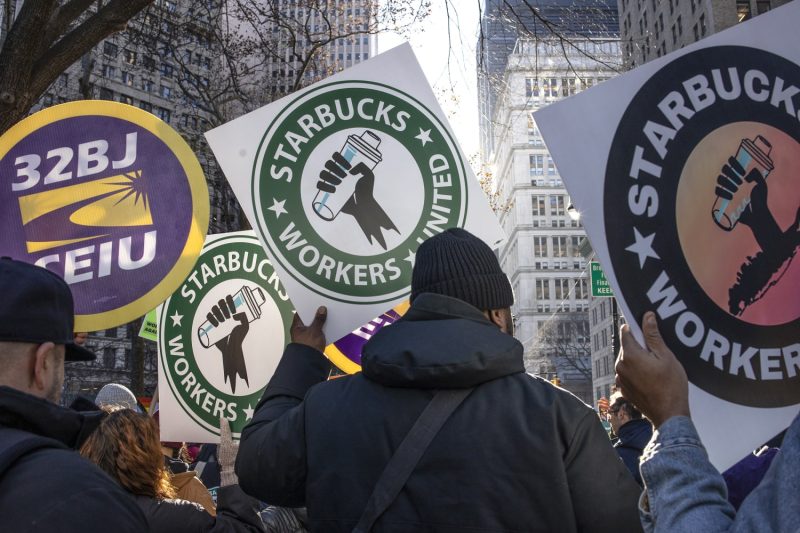
Starbucks’ Fresh CEO Brian Niccol Embraces Union Collaboration Amid Progress in Negotiations
In a groundbreaking move that has captured the attention of both the coffee industry and labor organizers, newly appointed Starbucks CEO Brian Niccol has pledged his commitment to working with the union as negotiations progress. The announcement marks a significant departure from the company’s previous stance on labor unions and signals a potential shift in the relationship between Starbucks and its employees.
Niccol, who assumed the role of CEO earlier this year, has wasted no time in making his mark on the company. With a background in the food industry and a reputation for innovation, Niccol’s appointment was seen as a strategic move by Starbucks to drive growth and adapt to changing consumer preferences. However, it is his willingness to engage with the union that is perhaps the most surprising and impactful decision of his tenure so far.
The decision to work with the union comes at a crucial time for Starbucks, with employees across the country increasingly vocal about their desire for better wages, benefits, and working conditions. Over the past year, there has been a growing wave of labor activism within the company, culminating in several high-profile strikes and protests. By acknowledging the union and committing to negotiations, Niccol is sending a clear signal that Starbucks is prepared to address these issues in a constructive and collaborative manner.
While the specifics of the negotiations have not yet been made public, it is clear that both sides will be looking to find common ground on a range of issues, including wages, benefits, scheduling, and workplace safety. The outcome of these talks could have far-reaching implications not only for Starbucks and its employees but also for the broader labor movement in the food and beverage industry.
For Starbucks, embracing the union represents a significant shift in its approach to labor relations. Traditionally, the company has been known for its opposition to unions and its efforts to maintain a non-unionized workforce. However, changing attitudes among both employees and consumers have forced Starbucks to reconsider its position and adopt a more progressive stance on labor issues.
For the union, the opportunity to negotiate with Starbucks represents a major victory in its ongoing efforts to organize workers in the food and beverage sector. By securing a seat at the table with one of the largest and most influential companies in the industry, the union has a unique opportunity to advocate for the rights and interests of Starbucks employees and set a precedent for other companies to follow.
As negotiations between Starbucks and the union move forward, all eyes will be on Niccol and his team to see how they navigate this new and uncharted territory. The outcome of these talks will not only shape the future of labor relations within Starbucks but also have broader implications for the entire food and beverage industry. Ultimately, Niccol’s decision to work with the union could prove to be a defining moment in his tenure as CEO and a turning point in the relationship between Starbucks and its employees.
